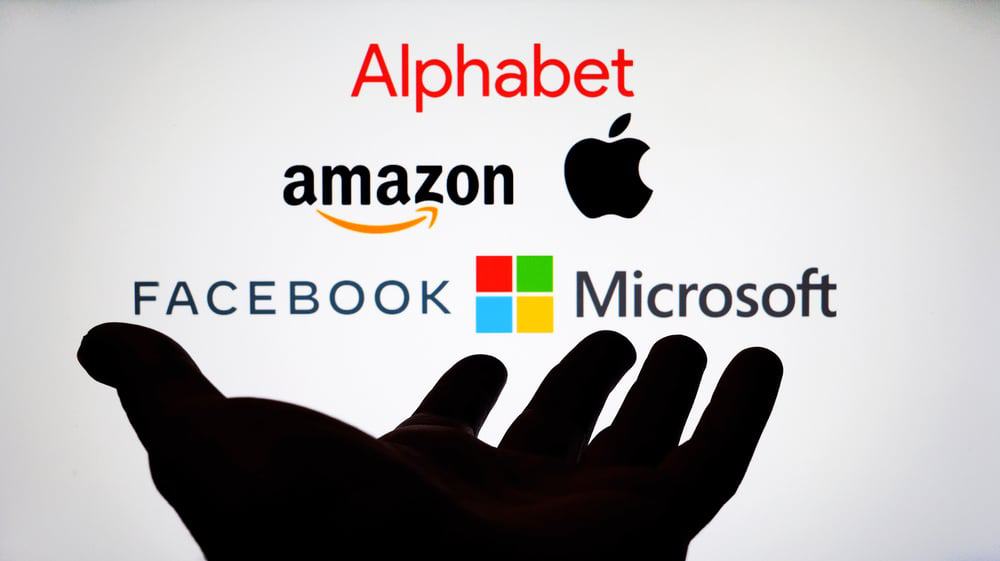The EU slaps Meta, Google and Microsoft with multi-million dollar fines. Takeovers by Big Tech companies are viewed with suspicion in both Europe and America. Despite all this friction, we see prominent figures like Sundar Pichai, Sam Altman and Mark Zuckerburg appearing at every turn in the administrative capitals of the West.
Virtually every week there’s fodder for those who would like to see politicians crack down on large tech companies whenever possible. As a recent highlight, we can take the record €1.2 billion fine for Meta, which received this penalty for sending European data to the US. Now no doubt this will have hurt inside the offices of upper management, but the fact remains that a company with a market cap of nearly $733 billion can handle this with some regularity.
The flip side: yesterday, seven tech companies were prepared to act as “gatekeepers” for the EU from now on to achieve the goals of the Digital Markets Act (DMA). This pertains to following guidelines around the interoperability of different applications. This should prevent unfair competition and give consumers more freedom of choice. Even if there is a coercive element within this DMA law (which may take effect in March 2024), it is notable that Big Tech is reacting to the call for aid of its own volition.
Unilateral
Now, policymakers of different political persuasions will logically draw different conclusions about dealing with tech companies. This is not a black-and-white picture but has extremes ranging from a wide latitude for maximum innovation on the one hand and substantial restrictions to ensure privacy and security on the other. Just think of the data for training generative AI solutions, data sharing in communication apps and the constantly evolving algorithms of platforms like YouTube and Facebook.
This political diversity explains, at least in part, why we may see fickle attitudes toward Big Tech, where tech advocates sometimes sit in on consultations and sometimes not. For example, the exact nature of the tech industry’s interference in Brussels is challenging to discern. However, we did see a recent example of what happens when these companies feel they’ve had too little influence. The Canadian government introduced Bill C-18, a law requiring Google and Meta to pay money for sharing news articles from that country. We’re not doing that, thought Google, and they promised to pull the plug on Canadian input for their own news platforms. In other words, if Big Tech doesn’t like what it sees, it just walks away.
Those who need more proof of this process can turn to the fact that we have yet to see a Google Bard in Europe. The AI chatbot was delayed for our continent in mid-June because Google wanted to avoid being in the crosshairs of Brussels. Coincidentally, this also happens to be a handy bargaining chip for the AI Act, which is currently being developed. After all, a too strict containment of AI could lead to a competitive disadvantage globally, just as Canadian news sites might end up complaining to their policymakers in Ottawa if the Google ban hits them on the bottom line.
Faster action
Big Tech holds a dominant position when it comes to news, innovation and economic clout. A few million- or even billion-dollar fines aren’t going to change that. That’s why policymakers in Brussels want to be able to complete privacy investigations faster and issue larger GDPR fines to have a real impact. The Irish regulator’s exceptionally active role in this area is also in question. It has so much influence because many tech companies are officially registered in Ireland.
Faster decisions would ultimately help Big Tech move forward as well. After all, no one benefits if a product launch in Europe takes a very long time compared to the rest of the globe. The EU’s bargaining chip is that it has nearly 450 million inhabitants, a potentially sizable customer base.
Thus, the same trade-off will continue each time: Big Tech tries to carve out more than is desirable for the EU, then Brussels puts together a (possibly incomplete) regulatory package. Then the tech companies resist, but eventually reach a compromise. For now, it doesn’t look like this is going to change. In any case, it is more desirable than a power game like the one in Canada, where everyone loses out.
Read also: Facebook tests Digital Markets Act and lets EU download apps
